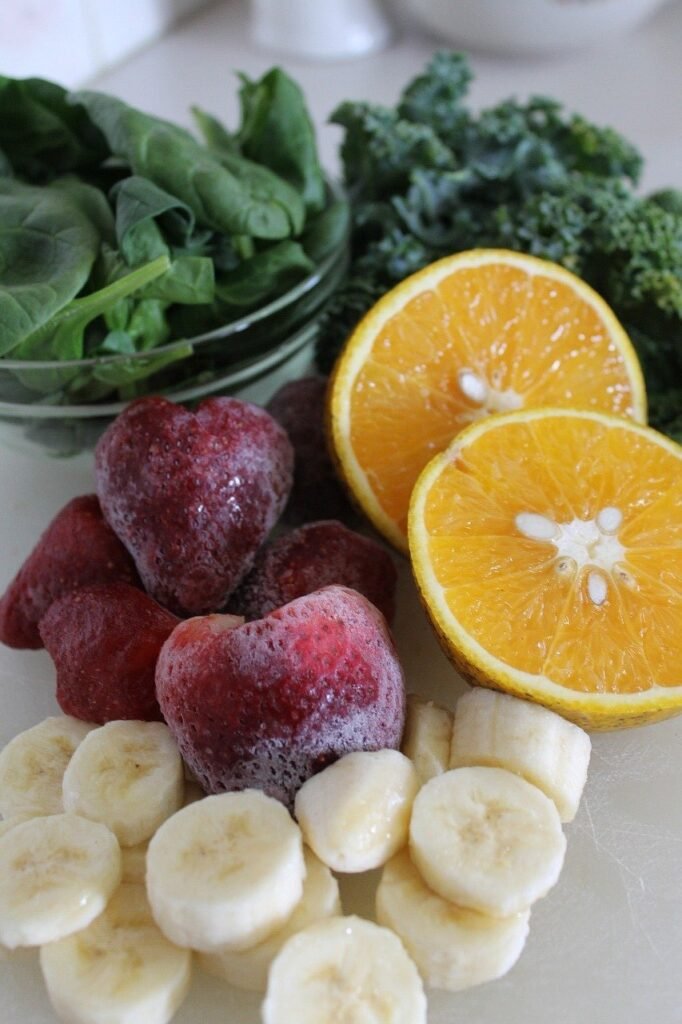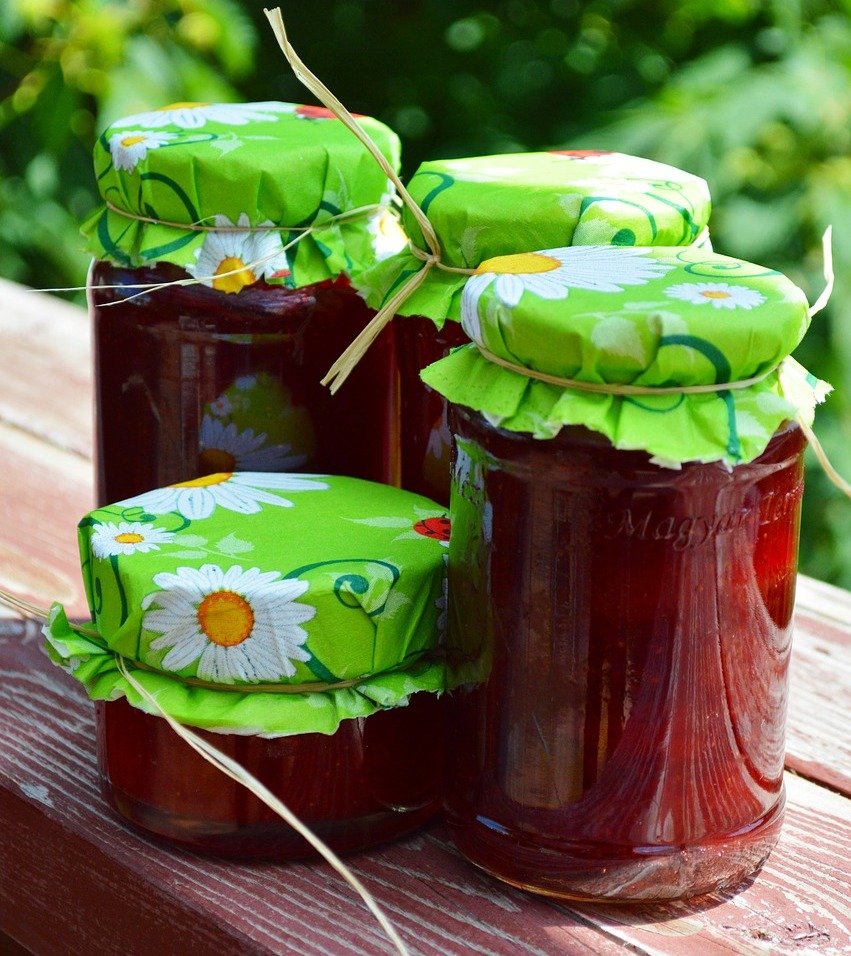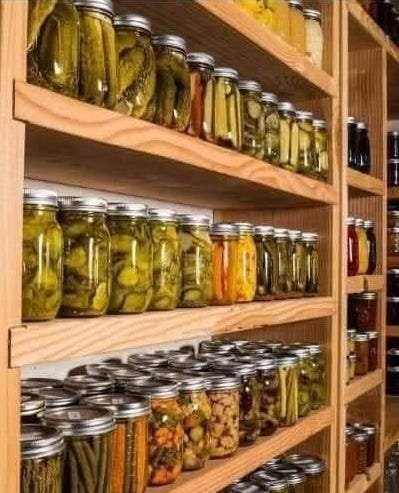What About Frozen Or Canned Fruits And Vegetables, Are They Healthy?
Table of Contents
Fruit and vegetables fresh from the market or frozen – which is better?
Frozen fruits and vegetables can be an alternative to fresh goods from the Grocery store, especially in winter.
Fruit and vegetables are the freshest when they come from the farmer’s market, and you eat them on the same day. The longer it is stored, the faster it loses valuable ingredients such as minerals and vitamins.
Fruit or vegetables fresh from the market or your own garden contains the most healthy nutrients if processed in the kitchen on the day of purchase or harvest. Eaten raw, it provides most of the nutrients.

However, after just a few days, the fruit and vegetables lose some of their vitamins, minerals, and secondary plant substances, as these are sensitive to light, heat, and oxygen.
The losses are substantial; for example, vitamin C. Studies confirm this. But for example, frozen beans contain, after a year still, 80 percent of vitamin C.
If you keep fresh beans in the refrigerator, their vitamin C content drops by 60 percent after just a few days.

Frozen fruits and vegetables are an excellent alternative to fresh goods from the weekly farmers’ market for some varieties.
Suppose the fruits and vegetables are shock-frozen immediately after harvest; it preserves the valuable ingredients. It is practical that frozen vegetables and fruit no longer have to be washed and cleaned. After defrosting, you can use it the same way as fresh fruit and vegetables. And it’s available all year round, so the choice of fruit and vegetables is not tied to the season.
Frozen Fruits, Vegetables, and Herbs
Some studies give good testimonials to unprocessed, only washed fruit, vegetables, and herbs. No wonder, since peas, carrots, cabbage, spinach or vegetable mixtures, herbs such as parsley or dill, and types of fruit such as berries are usually shock-frozen at minus 40 degrees a few hours after harvesting. It ensures gentle preservation and leaves essential ingredients such as vitamin C in the product as freshly harvested from the garden.
Indeed, some products from the grocery store cannot even keep up because of more or less long transport routes. Sometimes fruit and vegetables are waiting at the counter for days which ensures that the healthy ingredients disappear, and the taste suffers.

See also > HOW TO FREEZE FRESH HERBS AND STORE THEM FOR LATER
DON’T WASTE ORGANIC LEMONS – FREEZE THEM!
Loss of vitamins when canning?
There aren’t any vitamins left, and everything is too much cooked; some people say it here and there in one way or another. Do canning and preserving make no sense?
How do we measure the loss of vitamins? Bought fresh at the vegetable market and used directly? Or bought at the grocery store and spent a few days in the vegetable drawer? Freshly harvested in your garden?

See also 15 Vegan Recipes You Can Make With Frozen Veggies and Fruits!
And Inspiring Vegan Dishes That Will Taste All This Season
Tasteful Vegan Recipe Collection To Have Fun In The Kitchen
Is canning or freezing healthier?
Fruit and vegetables stored in the refrigerator from conventional cultivation and with long transport routes lose 50% or more of some vitamins within a few days.
Freshly harvested frozen food has a very high vitamin content, but remember that very few frozen foods are uncooked and that we heat them also after thawing.
In the case of frozen food, the temperature differences through the preparation methods are from the harvest temperature to freezing, then thawing again and cooking. So quite a lot of up and down of the temperatures.
Boiling destroys only specific vitamins partially.
During preparation, the heat and boiling destroy vitamins A and C, thiamine, and riboflavin the most, namely 1/3 to ½. Once canned, the further loss of these sensitive vitamins is between 5 and 20% annually.
A Pressure Canner reaches a high temperature, and the proportion of other vitamins in the preserves is slightly lower than in fresh products.
It is, therefore, crucial to pay attention to the quality of the starting product!

Are organic foods healthier when canned?
Organic food has a much higher nutrient content than industrially grown fruit and vegetable products. It is between 19% and 69% more and, at the same time, has a much lower load of pesticide residues or heavy metals.
The harvest of industrial products is unripe and then UV-radiated and has long transport routes and storage times behind them. But above all, the fact that the soil cannot recover is becoming increasingly poor in nutrients. The use of chemicals and pesticides is vigorous.
If you are worried about losing vitamins when preserving, you should start with good food instead of industrial products from the supermarket.
It is best to use local, organic, and freshly harvested or homegrown fruit and vegetables. Then, after its canning, it can also be richer in content than products you buy from the greengrocer.
Buy your products for preservation regionally and from the farmer
The quality of the preserves depends enormously on it. But even apart from preserving, buy regionally and directly from the producer.
🌱🍅🍆🍈🍎🍓🥦🥬🥒🌶🥑🌽🥕
Are you ready to start preserving fresh food for yourself?
Master Garden Instructor Stacey Murphy has mentored thousands of people so they can nourish their loved ones with homegrown, organic food.
In this Masterclass, she shows you how to preserve your harvests so you can enjoy fresh flavors year-round:
See also > Food Storage and Preservation: Why it Matters and How to Do it Properly
and > The Top Pesticide Soaked Fruits & Vegetables





